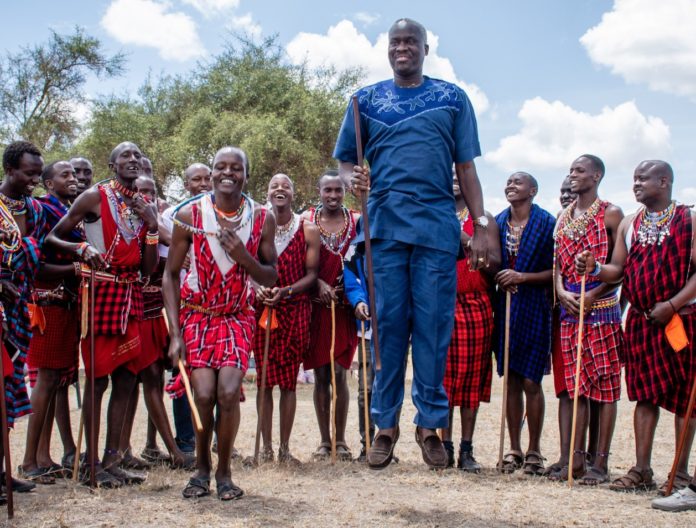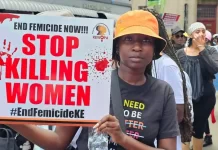By Clifford Akumu
Kajiado County, Kenya: Men have been urged to prioritize their well-being and health as they fight sexual and gender-based violence ( SGBV) against women and children in the community.
Speaking during celebrations to mark the 2021 International Men’s Day in Illaramatak village, Kajiado County recently, Dr. Ademola Olajide the United Nations Population Fund’s (UNFPA) Representative for Kenya called on men to take their health issues seriously.
“As men, we are very careless with issues to do with our health. I urge every man to start taking care of their health. Men can also ask for help contrary to the notion of being strong and in control. The wellbeing of everybody around you as a man is the mark of a great man and not the dominance,” said Dr. Olajide.
He urged men to stand firm to promote their own all-around wellness, positively mentor boys and respect the rights of women and girls.
Dr. Olajide further explained, “Take the case of women, for example, they ask questions about themselves every time they take their children for checkups in the hospital. For men, it is only when they collapse is when they go to the hospital.”
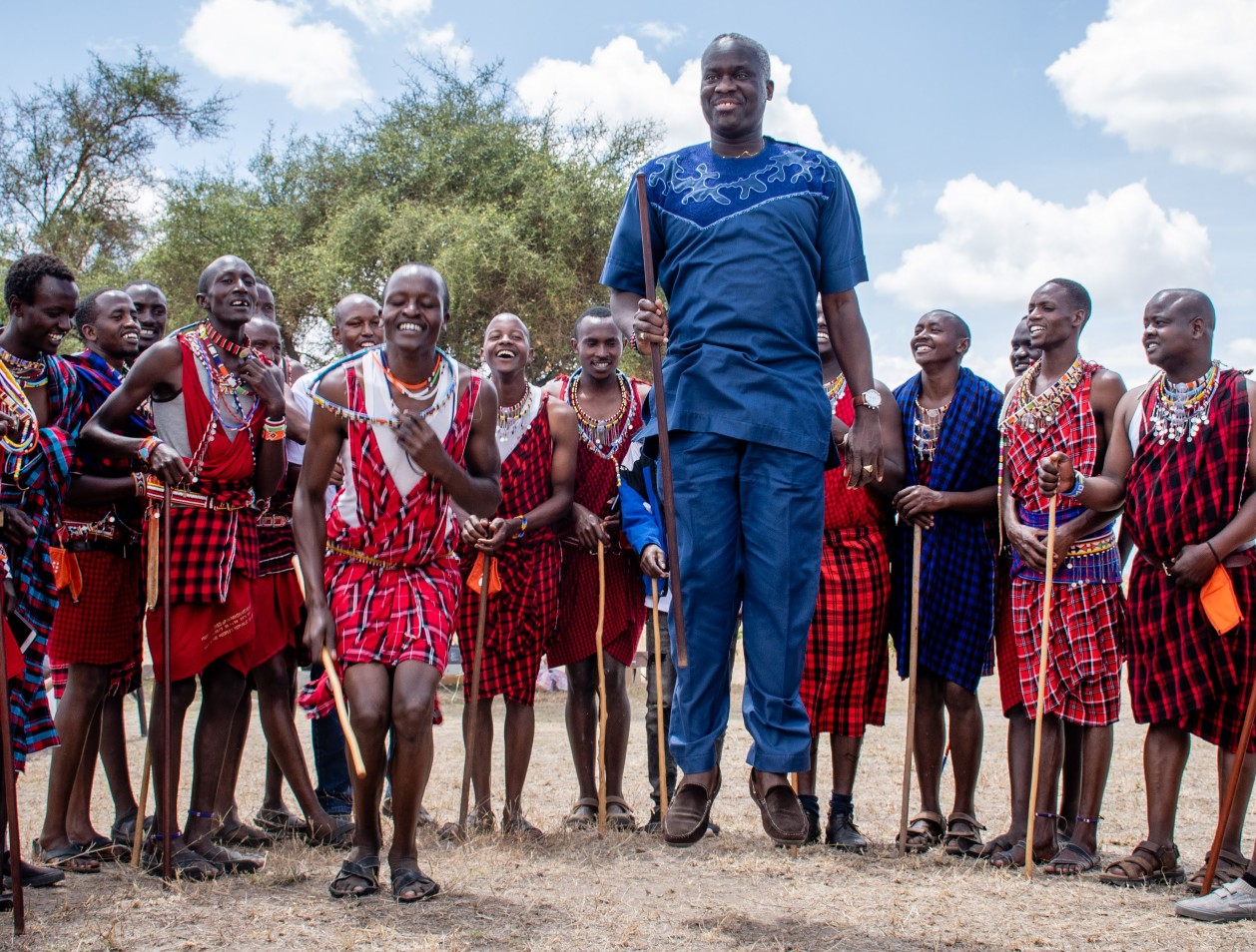
His remarks follow devastating data from the World Bank that puts suicide mortality rates in Kenya at 6.1 people in every 100,000 affected. Most Kenyan men are more prone to bouts of anxiety and depression that lead to suicide due to stereotypes about “being a man”.
This year’s International Men’s Day (Celebrated on November 19th) focused on men’s health, improving gender relations, highlighting male role models, and promoting positive expressions of masculinity.
“We are here to work with the men and young boys to end gender-based violence crimes. When men remain steadfast, our families will thrive,” said Ademola.
Dr. Ademola, while acknowledging the effects of climate change on the pastoralist community’s livestock and livelihoods and unemployment among the youth in Kajiado County, urged men to utilize the available opportunities in both national and county government for prosperity.
UNFPA and partners used the celebrations to launch a new campaign “Nitasimama Imara” under the hashtag ‘#positivemasculinity’-that include standing firm in the protection of the rights of everyone, especially women and girls by showing the role of men as agents of change and to end SGBV and harmful social norms.
He noted that men should take center stage in combating gender-based violence.
“We want to work with the county government and community-based organizations through our new campaign ‘Nitasimama Imara’ to address gender equality and in ending SGBV” noted Dr. Ademola.
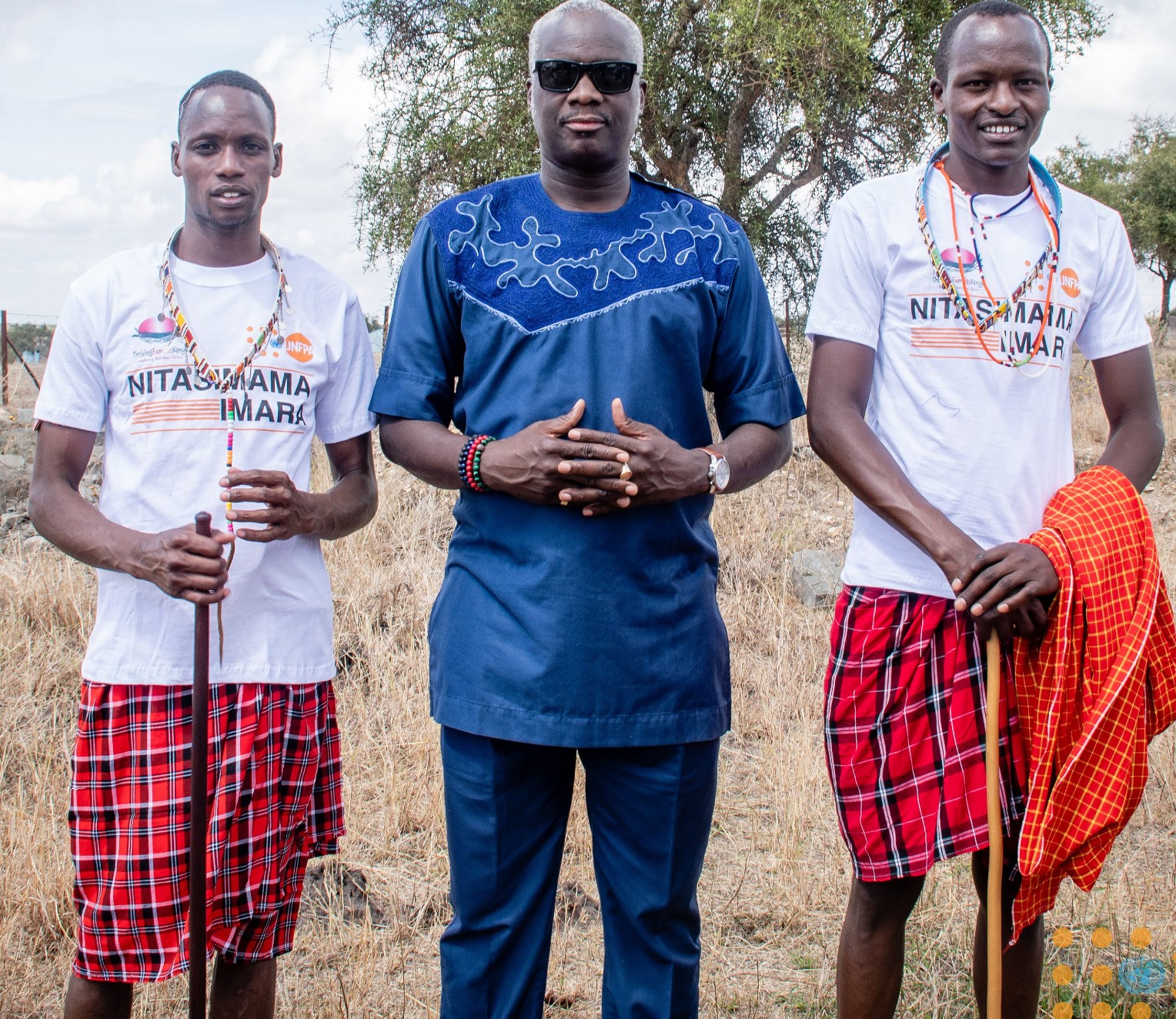
Faith Nashipae, founder of Thriving Families Kenya urged men to take lead on issues of gender equality.
“We are telling all men here today to stand tall. We want to empower men to fill the missing link in the gender equation,” said Nashipae.
Nashipae further stressed the need to involve men in the fight against sexual and gender-based violence.
“I urge all men to fight all forms of SGBV against women,” noted Nashipae.
The ongoing intergenerational dialogue on the role of men in ending SGBV within the Illaramatak community is creating a new crop of champions, noted Agnes Leina, Executive Director Illaramatak Community Concern
“We want to raise a generation of men who will be willing to marry women who have not undergone the cut,” said Leina, whose community-based organization is engaging men and young morans as champions and agents of change to end SGBV.
In 2020, for example, statistics released by the Ministry of Public Service and Gender showed that there was a 36 percent spike in GBV cases when 5,009 cases were recorded raising concerns on the safety of women and girls who are the most vulnerable in society.
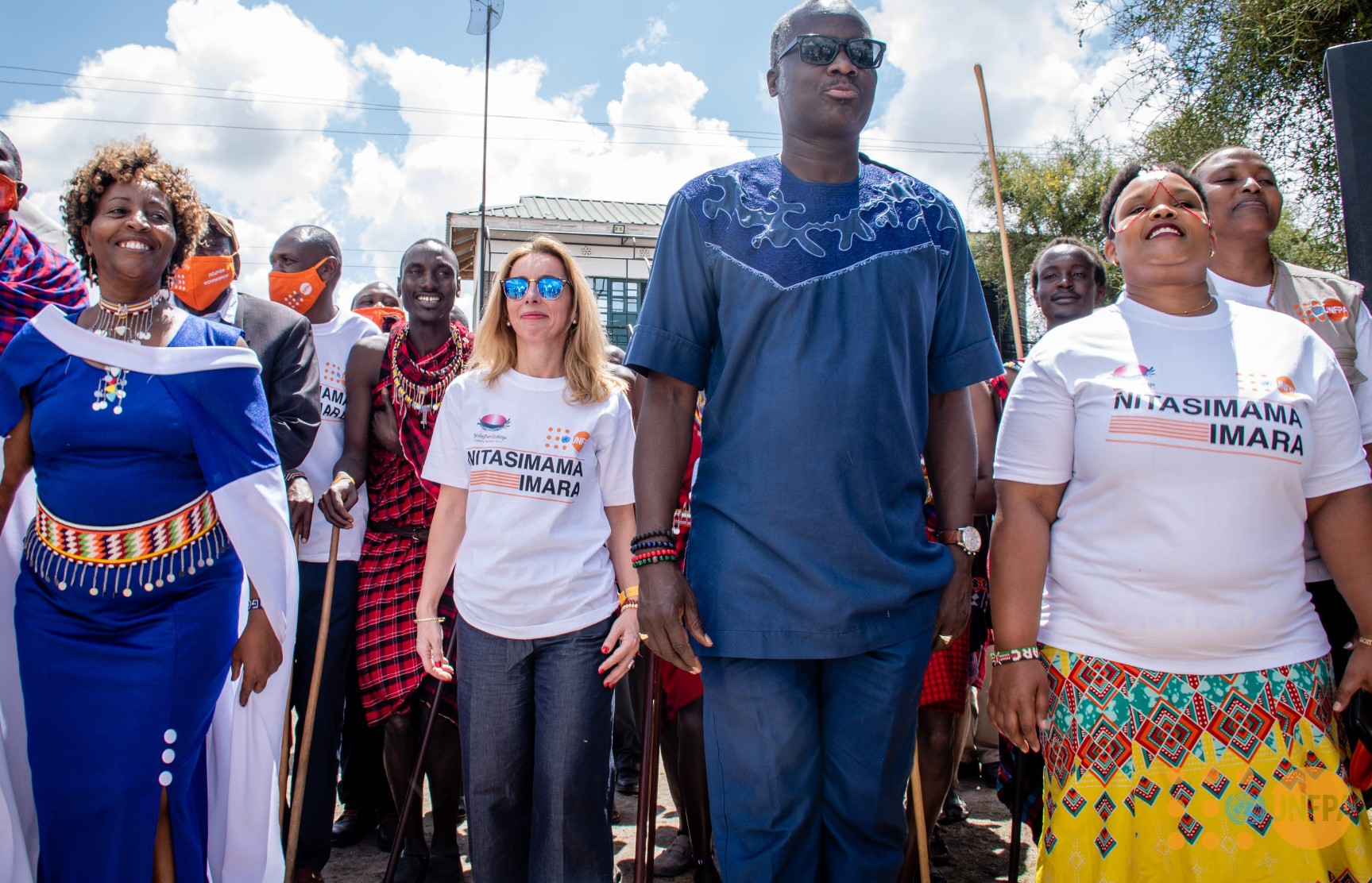
Faith Nasjipae, Director Thriving Families, Monica Ferro, UNFPA Representative Geneva, and Dr. Ademola Olajide UNFPA Representative Kenya/ Clifford Akumu.
To check on these cases, the Ministry of Gender provided a national GBV helpline 1195, national police helpline, and child helpline to allow for anonymous reporting, assistance to survivors, and to get referrals for medical and legal services to GBV victims.
The government also established 36 GBV shelters operated by Civil Society Organisations in 13 counties of Kisumu, Nairobi, Mombasa, Kwale, Samburu, Kajiado, Murang’a, Laikipia, Kiambu, Nyeri, Meru, Machakos, and Makueni.
Despite these numerous interventions by the government, there is still more ground to be covered if the country were to win the war on gender-based violence,
Florence Korir Programs Manager at World Vision Kenya attributed the drop in SGBV cases across parts of Kajiado County, partly, to the role of men in fighting the practice.
“We are happy that the breakthrough is because of involving men in the picture. If we cooperate as a team, all the harmful social norms and practices against women and young girls will reduce tremendously,” said Mrs. Korir.

